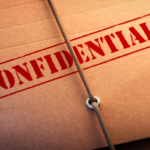Privacy and Confidentiality: Tips for Lawyers Working in Coworking Spaces
In today’s fast-paced, flexible work environment, many professionals, including lawyers, are opting for coworking spaces to enhance their productivity, collaborate with peers, and embrace a more dynamic work culture. However, for lawyers, maintaining client confidentiality and privacy is paramount, especially in a shared workspace. With sensitive information and privileged communications at stake, it’s critical to be cautious and strategic about how to navigate these environments.
Here are some essential tips for lawyers working in coworking spaces to ensure privacy and confidentiality remain uncompromised:
1. Choose a Coworking Space with Security Features
Not all coworking spaces are created equal when it comes to security. Before committing, assess the space’s security protocols:
- Physical Security: Ensure the space has controlled access, such as keycards or biometrics, to restrict entry to unauthorized individuals.
- Data Security: Verify the space offers secure Wi-Fi networks, encrypted data transfer, and locked storage options for sensitive documents.
2. Use Private Meeting Rooms for Sensitive Discussions
While open seating areas and shared lounges can be conducive to creativity and networking, they are not the best choice for confidential client discussions. Opt for private meeting rooms or phone booths, and always check that the room is fully enclosed with no audio leakage. Many coworking spaces provide these as bookable options to maintain privacy.
3. Limit Shared Devices and Public Computers
Avoid using public computers or shared devices for tasks involving confidential information. If you need to access confidential documents, use your own encrypted devices and VPN (Virtual Private Network) to safeguard data. Additionally, always ensure that you log out of any accounts on shared devices.
4. Secure Client Files and Documents
For lawyers, keeping physical and digital client files secure is crucial. When working in coworking spaces:
- Use locked filing cabinets for physical documents.
- Store sensitive digital files in encrypted cloud services and set up strong passwords.
- Consider using a shredder or secure disposal bins to dispose of documents you no longer need.
5. Be Mindful of What You Share in Public Spaces
Coworking spaces foster a collaborative culture, but this can sometimes blur the lines of professionalism. Avoid discussing sensitive or confidential matters in common areas, even if you believe no one is listening. Conversations about client matters should remain private to protect your clients’ interests.
6. Implement Non-Disclosure Agreements (NDAs) When Necessary
If you’re collaborating with others in the coworking space on legal matters, ensure you establish clear confidentiality agreements or NDAs before sharing sensitive information. This will help legally protect your clients’ information and set expectations regarding privacy.
7. Practice Safe Remote Working
Coworking spaces can often be a haven for digital nomads and remote workers, which can lead to vulnerabilities. Be cautious when working remotely from coworking spaces:
- Always use a VPN to mask your online activity.
- Ensure your device’s software is up-to-date and has anti-virus protections.
- Turn off location tracking and avoid connecting to unsecured networks.
8. Educate Your Team and Clients
If you’re working with a team or clients in a coworking space, it’s important to communicate your confidentiality practices clearly. Ensure your team understands the importance of safeguarding confidential information. Similarly, reassure your clients that their privacy is being protected, which may help build trust in your services.
Conclusion
Coworking spaces can offer valuable opportunities for lawyers to network, collaborate, and increase their productivity. However, maintaining the highest standards of privacy and confidentiality requires careful planning and attention to detail. By following these tips, lawyers can thrive in coworking environments while ensuring they meet their ethical and legal responsibilities to their clients.
Remember, confidentiality is a cornerstone of the legal profession, and no matter where you work, it’s essential to protect the integrity of your practice and the trust of your clients.

